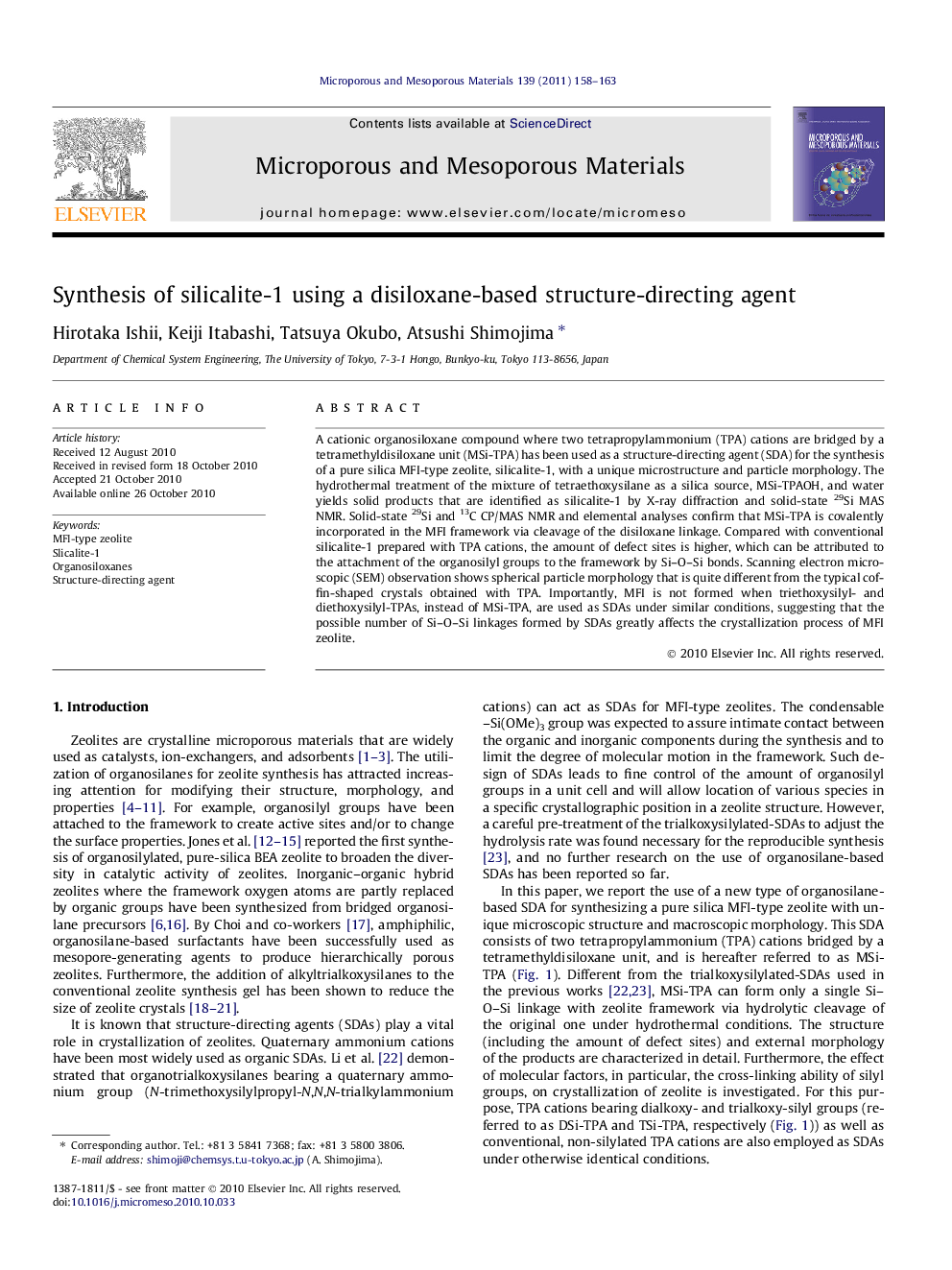| کد مقاله | کد نشریه | سال انتشار | مقاله انگلیسی | نسخه تمام متن |
|---|---|---|---|---|
| 75014 | 49106 | 2011 | 6 صفحه PDF | دانلود رایگان |

A cationic organosiloxane compound where two tetrapropylammonium (TPA) cations are bridged by a tetramethyldisiloxane unit (MSi-TPA) has been used as a structure-directing agent (SDA) for the synthesis of a pure silica MFI-type zeolite, silicalite-1, with a unique microstructure and particle morphology. The hydrothermal treatment of the mixture of tetraethoxysilane as a silica source, MSi-TPAOH, and water yields solid products that are identified as silicalite-1 by X-ray diffraction and solid-state 29Si MAS NMR. Solid-state 29Si and 13C CP/MAS NMR and elemental analyses confirm that MSi-TPA is covalently incorporated in the MFI framework via cleavage of the disiloxane linkage. Compared with conventional silicalite-1 prepared with TPA cations, the amount of defect sites is higher, which can be attributed to the attachment of the organosilyl groups to the framework by Si–O–Si bonds. Scanning electron microscopic (SEM) observation shows spherical particle morphology that is quite different from the typical coffin-shaped crystals obtained with TPA. Importantly, MFI is not formed when triethoxysilyl- and diethoxysilyl-TPAs, instead of MSi-TPA, are used as SDAs under similar conditions, suggesting that the possible number of Si–O–Si linkages formed by SDAs greatly affects the crystallization process of MFI zeolite.
Figure optionsDownload as PowerPoint slideResearch highlights
► A disiloxane-based compound containing two quaternary ammonium cations is used as a structure-directing agent for the synthesis of a pure silica MFI-type zeolite, silicalite-1.
► The product has more defect sites than conventional silicalite-1 prepared with tetrapropylammonium cation.
► The product has spherical particle morphology that is different from the typical coffin-shaped crystals of conventional silicalite-1.
Journal: Microporous and Mesoporous Materials - Volume 139, Issues 1–3, March 2011, Pages 158–163